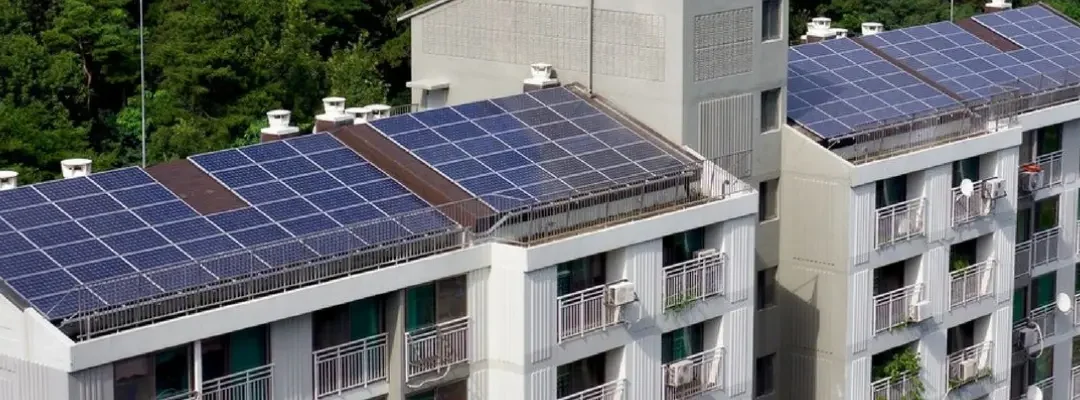Introduction
Solar is one of the best ways for housing societies to reduce monthly electricity bills for lifts, pumps, corridor lighting, and clubhouses. But solar is a long-term investment. If done correctly, it gives free power for 20+ years. If done wrongly, it can lead to poor savings, disputes, or wasted money.
Here are the 10 common mistakes societies make while going solar—and simple tips to avoid them.
1. Skipping a Proper Feasibility Study
Some societies take quick quotes without checking their roof size, sunlight availability, and real power needs.
This often leads to installing too small or too big a system.
How to avoid: Always start with a professional site survey and get a detailed report before finalizing.
2. Not Taking RWA / AGM Approval
Solar affects everyone in the society. Without a formal approval in AGM, residents may disagree later.
How to avoid: Pass a clear resolution in the society meeting and record it in the minutes.
3. Ignoring Roof Space & Shadows
Water tanks, lift rooms, or nearby trees may block sunlight. Even small shadows reduce output by 20–30%.
How to avoid: Do a shadow analysis and plan proper panel placement.
4. Choosing Cheap Equipment
Some vendors give low prices by using poor-quality panels or inverters. These fail quickly and reduce savings.
How to avoid: Use certified, branded panels and inverters with proper warranties (25 years for panels, 5–10 years for inverters).
5. Forgetting Net Metering
Without net metering, societies cannot send extra power back to the grid. This reduces savings.
How to avoid: Apply for net metering approval early through DISCOM with the help of an empaneled EPC partner.
6. No Maintenance Plan (AMC)
Dust, bird droppings, or faulty wires reduce generation if not cleaned and checked. Many societies think solar is “install and forget.”
How to avoid: Sign an AMC (Annual Maintenance Contract) with your EPC company for cleaning, monitoring, and repairs.
7. Not Understanding CAPEX vs OPEX
Some societies are confused about funding.
- CAPEX = society pays upfront → more savings.
- OPEX/RESCO = no upfront cost → pay discounted tariff.
How to avoid: Choose based on your funds and long-term goals.
8. Overlooking Safety & Waterproofing
Improper wiring or poor installation may cause water leakage or safety risks.
How to avoid: Work only with EPC partners who follow safety standards and certifications.
9. No Cost-Sharing Model Among Residents
Disputes happen when members are unclear about who pays and how savings are shared.
How to avoid: Decide early—use sinking fund, special contribution, or equal sharing—and document it.
10. Picking Vendors Only on Price
Choosing the cheapest vendor often leads to poor design, failed subsidies, and system breakdowns.
How to avoid: Select a professional EPC company with references and proven housing society projects.

